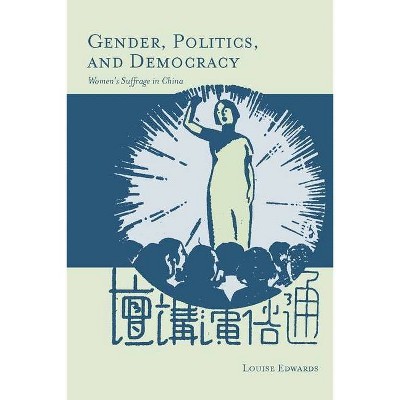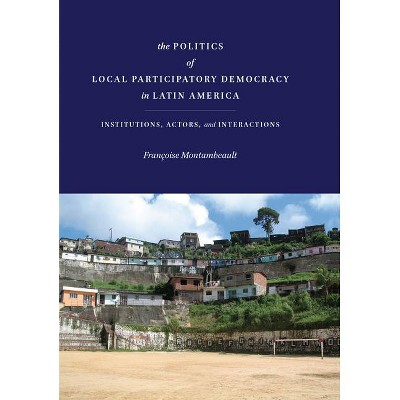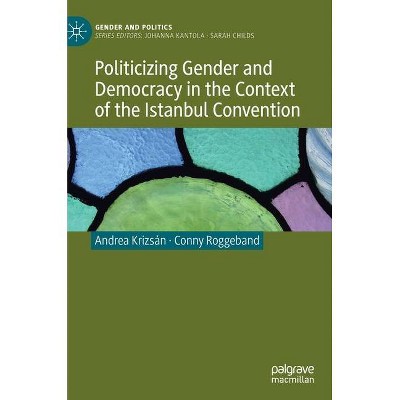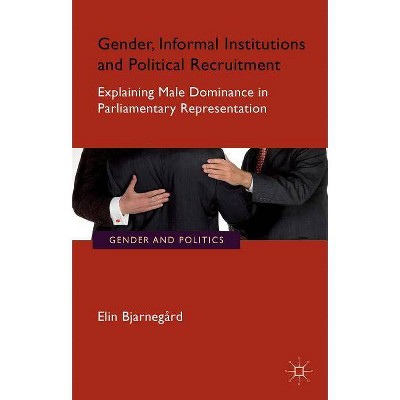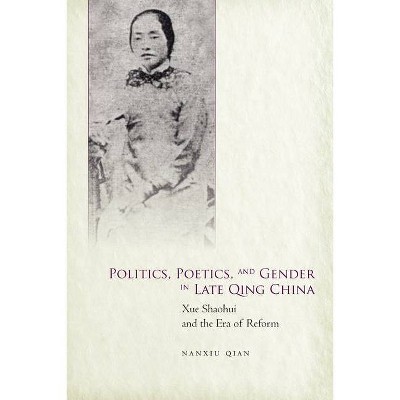Women, Politics, and Democracy in Latin America - (Crossing Boundaries of Gender and Politics in the Global Sou) (Hardcover)
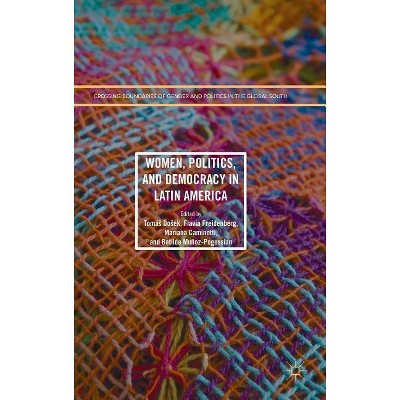
Similar Products
Products of same category from the store
AllProduct info
<p/><br></br><p><b> Book Synopsis </b></p></br></br><p>This book discusses the current tendencies in women's representation and their role in politics in Latin American countries from three different perspectives. Firstly, the authors examine cultural, political-partisan and organizational obstacles that women face in and outside institutions. Secondly, the book explores barriers in political reality, such as gender legislation implementation, public administration and international cooperation, and proposes solutions, supported by successful experiences, emphasising the nonlinearity of the implementation process. Thirdly, the authors highlight the role of women in politics at the subnational level. The book combines academic expertise in various disciplines with contributions from practitioners within national and international institutions to broaden the reader's understanding of women in Latin American politics.</p><p/><br></br><p><b> From the Back Cover </b></p></br></br>This book discusses the current tendencies in women's representation and their role in politics in Latin American countries from three different perspectives. Firstly, the authors examine cultural, political-partisan and organizational obstacles that women face in and outside institutions. Secondly, the book explores barriers in political reality, such as gender legislation implementation, public administration and international cooperation, and proposes solutions, supported by successful experiences, emphasising the nonlinearity of the implementation process. Thirdly, the authors highlight the role of women in politics at the subnational level. The book combines academic expertise in various disciplines with contributions from practitioners within national and international institutions to broaden the reader's understanding of women in Latin American politics.<p/><br></br><p><b> Review Quotes </b></p></br></br><br>"This book leverages rigorous research to develop a series of policy proposals for expanding and deepening women's involvement in Latin American democracies. The book is accessible to a broad audience including political science students, activists, and practitioners. ... As such, Women, Politics, and Democracy in Latin America will serve as a springboard for future research on women's political empowerment and a resource for cultivating formal and informal strategies for institutionalising women's access to political power." (Tiffany D. Barnes, Gender & Development, Vol. 25 (3), November, 2017)<p></p><br><p/><br></br><p><b> About the Author </b></p></br></br><b>Tomás Dosek</b> is a Ph.D. student in Political Science at the Institute of Political Science of the Pontifical Catholic University of Chile. He holds an M.A. in Latin American Studies from the <i>Instituto de Iberoamérica, </i>University of Salamanca, Spain.<b><br/></b><b>Flavia Freidenberg</b> is Principal Researcher at the Institute of Legal Research of the National Autonomous University of Mexico, and Professor of the Postgraduate Program in Political and Social Science at the same university. She is Associate Editor of Politics and International Relations of Latin American Research Review (LARR).<b><br/></b><b>Mariana Caminotti </b>is Associate Professor of Political Science at the Universidad Nacional de San Martín, Argentina, and Researcher at the National Scientific and Technical Research Council (CONICET), at the Center for Federal and Electoral Studies of the School of Politics and Government of the same University.<b><br/></b><b>Betilde Muñoz-Pogossian</b> is Director of the Department of Social Inclusion of the Organization of American States (OAS), and former Director of the Department of Electoral Cooperation and Observation (2011-2014). Muñoz-Pogossian holds a Ph.D. in Political Science from Florida International University of Miami. <br/>
Price History
Price Archive shows prices from various stores, lets you see history and find the cheapest. There is no actual sale on the website. For all support, inquiry and suggestion messages communication@pricearchive.us
